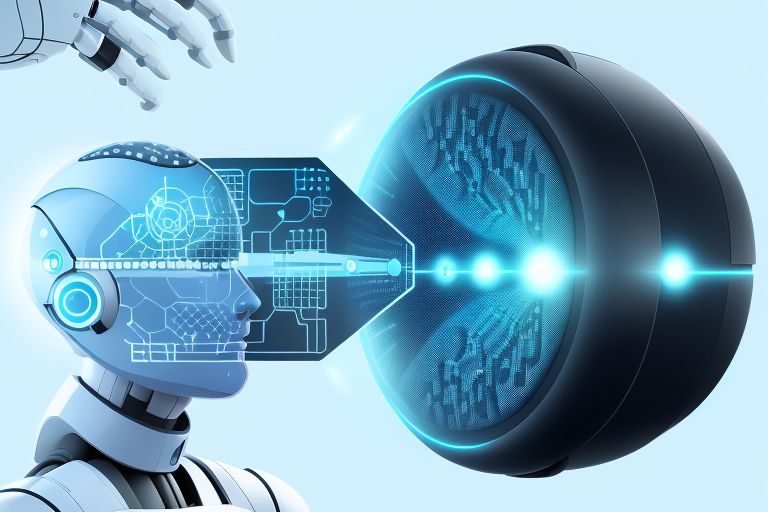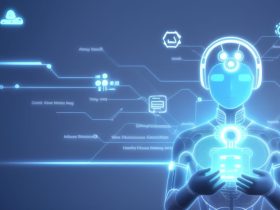Artificial Intelligence (AI) has seamlessly integrated into our daily lives, transforming the way we work, communicate, and even entertain ourselves. From virtual assistants to smart home devices, AI-driven technologies are no longer futuristic concepts—they are here, making our lives more efficient and convenient. But how exactly is AI shaping everyday life, and what are the practical benefits it brings? In this article, we’ll explore the myriad ways AI is revolutionizing our world, providing real-world examples, and offering insights into its future potential.
AI in Personal Assistants and Smart Devices
One of the most noticeable applications of AI in everyday life is through personal assistants like Siri, Alexa, and Google Assistant. These voice-activated tools use natural language processing (NLP) to understand and respond to user queries, perform tasks, and even control other smart devices. For instance, you can ask Alexa to play your favorite song, set a reminder, or adjust your thermostat—all without lifting a finger.
How AI Powers Smart Home Devices
Smart home devices, such as thermostats, security cameras, and lighting systems, leverage AI to learn user preferences and automate routines. For example, the Nest Learning Thermostat uses AI algorithms to analyze your temperature adjustments and create a personalized schedule, saving energy and enhancing comfort. Similarly, AI-powered security cameras can distinguish between a person, a pet, and a moving object, reducing false alarms.
AI in Healthcare and Wellness
AI is making significant strides in the healthcare industry, improving patient care and streamlining processes. Wearable devices like Fitbit and Apple Watch use AI to monitor heart rate, sleep patterns, and physical activity, providing users with actionable insights to improve their health. Moreover, AI-driven diagnostic tools can analyze medical images, such as X-rays and MRIs, with remarkable accuracy, aiding doctors in early disease detection.
AI in Mental Health Support
Mental health apps like Woebot and Wysa use AI to offer emotional support and counseling. These chatbots engage users in conversations, provide coping strategies, and even detect signs of depression or anxiety. While they don’t replace professional therapy, they serve as accessible tools for individuals seeking immediate help.
AI in Transportation and Navigation
Navigation apps like Google Maps and Waze rely on AI to provide real-time traffic updates, suggest the fastest routes, and predict arrival times. Additionally, AI is at the core of autonomous vehicles, enabling them to perceive their surroundings, make decisions, and navigate safely. Companies like Tesla and Waymo are leading the charge in developing self-driving cars, which have the potential to reduce accidents and revolutionize transportation.
AI in Public Transportation
AI is also enhancing public transportation systems by optimizing schedules, predicting delays, and managing passenger flow. For instance, AI-powered systems can analyze historical data to predict peak travel times and adjust service frequency accordingly, ensuring a smoother commute for passengers.
AI in Entertainment and Media
The entertainment industry has embraced AI to create personalized experiences for users. Streaming platforms like Netflix and Spotify use AI algorithms to recommend movies, TV shows, and music based on user preferences. This not only enhances user engagement but also helps content creators reach their target audience more effectively.
AI in Content Creation
AI is also making waves in content creation. Tools like ChatGPT and Jasper.ai assist writers in generating blog posts, social media captions, and even full-length articles. While these tools don’t replace human creativity, they serve as valuable aids for brainstorming ideas and speeding up the writing process.
AI in Education and Learning
AI is transforming the education sector by offering personalized learning experiences. Platforms like Khan Academy and Duolingo use AI to adapt lessons to individual learning styles and pace. For instance, if a student struggles with a particular concept, the system can provide additional resources or practice exercises to help them master it.
AI in Classroom Management
Teachers are also benefiting from AI tools that automate administrative tasks, such as grading assignments and tracking student progress. This allows educators to focus more on teaching and mentoring, ultimately improving the learning experience for students.
AI in Retail and E-commerce
Retailers are leveraging AI to enhance the shopping experience both online and in-store. AI-powered recommendation engines analyze browsing and purchase history to suggest products tailored to individual preferences. Virtual try-on tools, powered by AI, allow customers to visualize how clothing or accessories will look on them before making a purchase.
AI in Inventory Management
AI is also streamlining inventory management by predicting demand and optimizing stock levels. This reduces the risk of overstocking or understocking, ensuring that customers can find what they need when they need it.
Ethical Considerations and Challenges
While AI offers numerous benefits, it also raises important ethical questions. Issues like data privacy, algorithmic bias, and job displacement must be addressed to ensure that AI technologies are developed and deployed responsibly. For example, AI systems trained on biased data can perpetuate discrimination, highlighting the need for diverse and inclusive datasets.
The Role of Regulation
Governments and organizations are beginning to implement regulations to govern the use of AI. These policies aim to protect user privacy, ensure transparency, and promote accountability. However, striking the right balance between innovation and regulation remains a challenge.
Conclusion
AI is no longer a distant concept—it’s a tangible reality reshaping our everyday lives in profound ways. From virtual assistants and smart home devices to healthcare and education, AI-driven technologies are enhancing efficiency, personalization, and accessibility. However, as we continue to integrate AI into our lives, it’s crucial to address the ethical challenges and ensure that these innovations benefit society as a whole. By staying informed and proactive, we can harness the full potential of AI while mitigating its risks, paving the way for a brighter, smarter future.












Leave a Reply